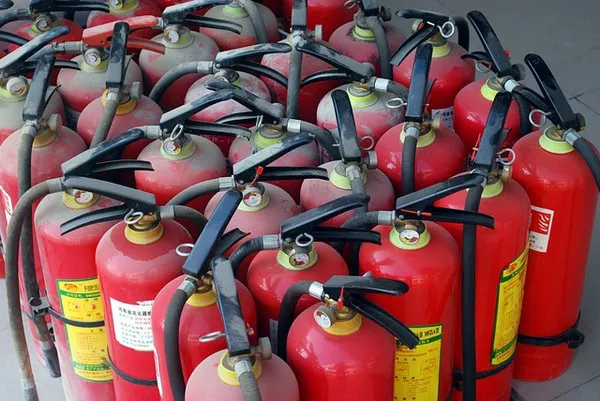Fire safety is a critical aspect of any environment, and understanding the appropriate fire extinguisher for different types of fires is paramount. When it comes to fires involving electrical equipment and components, selecting the right extinguisher is crucial to ensure both safety and effective suppression. In this article, we will delve into the importance of using the correct fire extinguisher for electrical fires and explore the various types available.
The Nature of Electrical Fires
Electrical fires pose a unique set of challenges compared to other types of fires. Unlike fires involving flammable liquids or combustible materials, electrical fires are characterized by the presence of live electrical currents. Using water or traditional fire extinguishers on electrical fires can lead to disastrous consequences, as water conducts electricity and can result in electric shock or further escalation of the fire.
Understanding Fire Extinguisher Classes
Fire extinguishers are categorized into different classes based on the types of fires they are designed to combat. The classification system includes Class A, Class B, Class C, Class D, and Class K. For electrical fires, the relevant classes are Class C and Class D. Let’s explore each class in detail:
Class C Fire Extinguishers
Class C fire extinguishers are specifically designed for electrical fires. They contain non-conductive extinguishing agents that do not conduct electricity, making them safe for use on live electrical equipment. The most common type of Class C extinguisher contains a dry chemical, such as sodium bicarbonate or potassium bicarbonate. These chemicals work by interrupting the chemical reaction of the fire.
When using a Class C fire extinguisher, it’s essential to follow the manufacturer’s instructions carefully. Aim the extinguisher at the base of the flames and sweep from side to side until the fire is fully extinguished. Remember to de-energize the electrical equipment whenever possible before attempting to extinguish the fire.
Class D Fire Extinguishers
Class D fire extinguishers are designed for fires involving combustible metals, such as magnesium, titanium, and lithium. While these extinguishers are not commonly found in everyday environments, they are crucial in certain industrial settings where combustible metals are present. In the context of electrical fires, it’s crucial to note that Class D extinguishers are not suitable for use on live electrical equipment.
Selecting the Right Extinguisher for Electrical Fires
Given the unique nature of electrical fires, it’s essential to choose the right extinguisher to ensure effective suppression without compromising safety. Here are some key considerations when selecting an extinguisher for electrical fires:
1. Class C Extinguisher Compatibility
When dealing with electrical fires, a Class C fire extinguisher is the go-to choice. Ensure that the extinguisher is labeled as suitable for use on electrical fires. Look for extinguishers with dry chemical agents that are non-conductive and safe to use on live electrical equipment.
2. Size and Placement
Consider the size and location of the area where the extinguisher will be placed. For smaller spaces, a portable extinguisher may suffice, while larger areas may require more extensive fixed fire suppression systems. Place extinguishers near potential fire hazards, taking care not to obstruct access or visibility.
3. Training and Awareness
Providing adequate training to individuals in the vicinity of potential electrical fire hazards is crucial. Ensure that personnel are aware of the location of fire extinguishers, understand their operation, and know when to evacuate and call for professional help.
4. Regular Maintenance
Regular inspection and maintenance of fire extinguishers are vital to ensure their functionality when needed. Schedule routine checks, including visual inspections, pressure tests, and refills as necessary. Non-functional or expired extinguishers should be replaced promptly.
See Also: What Foam Extinguishers Are Used For?All You Need To Know
Conclusion
Selecting the right fire extinguisher for electrical fires is a critical aspect of overall fire safety. Understanding the unique challenges posed by electrical fires and choosing the appropriate Class C extinguisher can make the difference between effective suppression and potential hazards. By considering factors such as extinguisher class, size, placement, training, and maintenance, individuals and organizations can enhance their preparedness and mitigate the risks associated with electrical fires. Fire safety is a shared responsibility, and investing in the right equipment and knowledge is essential for protecting lives and property.

